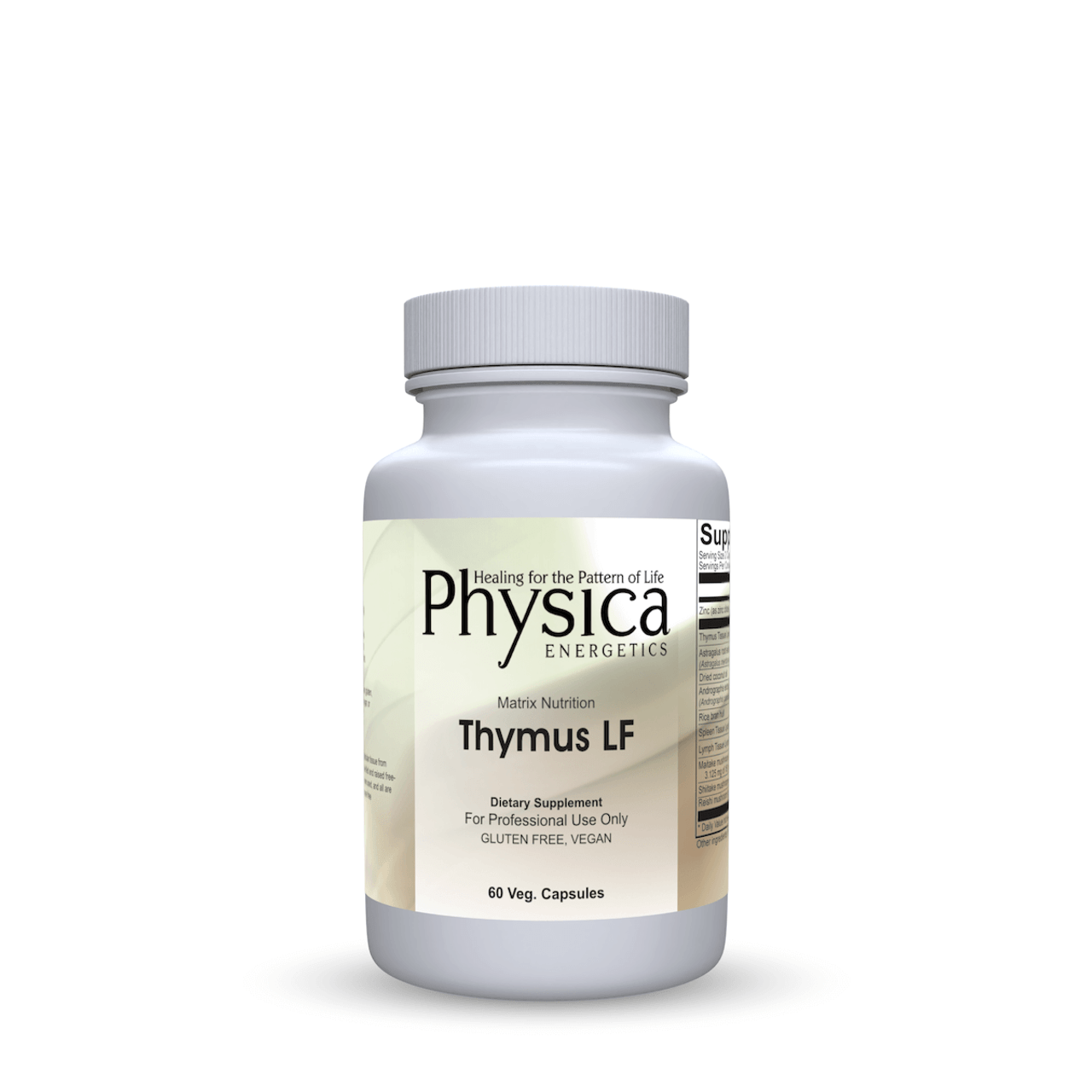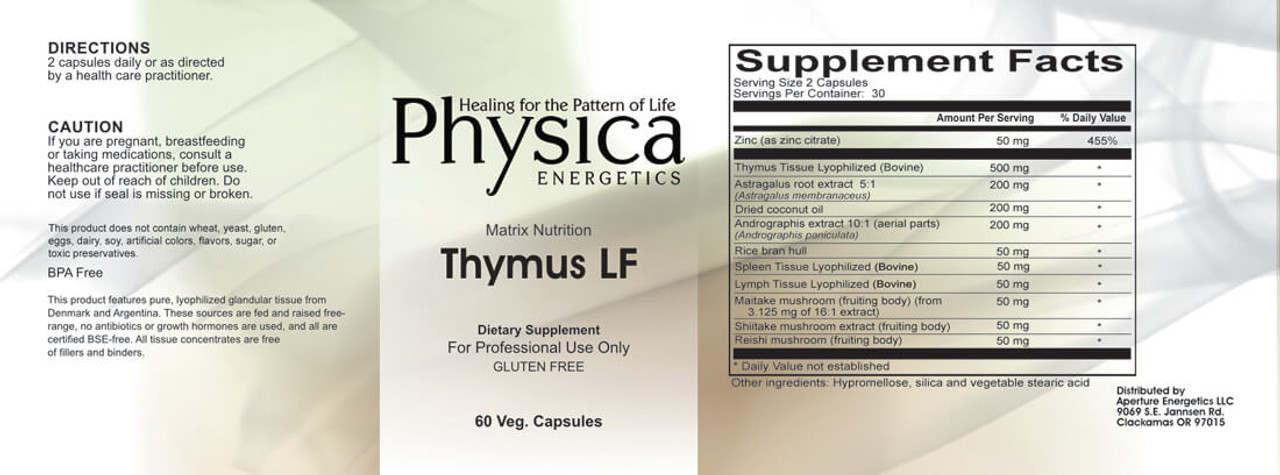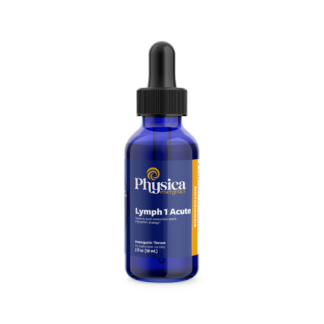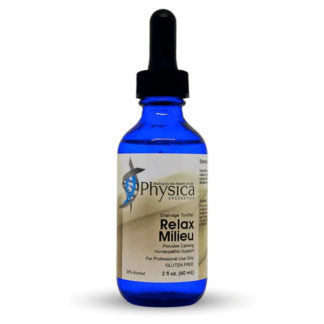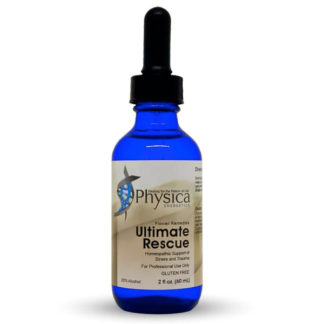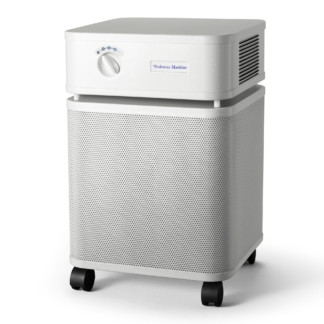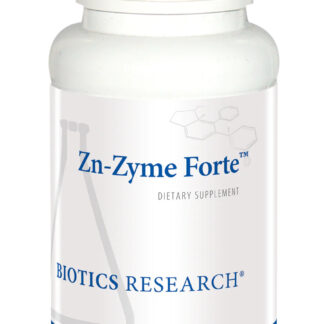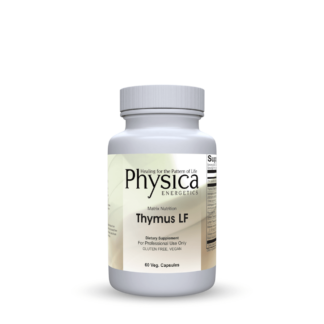Description
Thymus LF offers support for the thymus gland providing restoration and balance of the immune system and lymphocyte functions. The key to a healthy, functioning immune system rests with the thymus gland, a small organ lying just beneath the breastbone. One of the primary roles of the thymus is to assist in the proliferation and differentiation of mature T-lymphocytes; cells that attack and kill viruses and bacteria. The entire development of the T-lymphocytes from the stem cells of the bone marrow occurs via the thymus gland. T-cells emerge from the bone marrow in an incomplete state. In order to function properly, immature T cells migrate to the thymus gland where they are programmed into mature T-cells that orchestrate the immune response to attack and destroy invading pathogens.
These T-lymphocytes (a type of white blood cell) are responsible for “cell-mediated immunity.” Cell-mediated immunity refers to immune mechanisms not controlled or mediated by antibodies. Cell-mediated immunity is extremely important in the resistance to infection by certain bacteria, yeast (including Candida albicans), fungi, parasites, and viruses (including herpes simplex, Epstein-Barr, CMV, etc.) Cell-mediated immunity is also critical in protecting against the development of cancer, allergies, and autoimmune disorders such as rheumatoid arthritis. The thymus gland also releases several hormones, such as thymosin, thymopoietin, and serum thymic factor, that regulate many immune functions. Thymosin for example stimulates the development of disease fighting T-cells. Once T-cells have fully matured in the thymus, they migrate to the lymph nodes.
In most everyone, by the time a person reaches the age of about 50, the thymus gland has shrunken, to at most, half its former size. This is called involution or atrophy of the thymus gland. It is a common feature of aging on planet earth! As we age, the thymus shrinks as its role shifts from immune cell production to regulation of the immune response. Atrophy of the thymus gland is important because as part of the immune system it contains lymph tissue, similar to that found in the tonsils, adenoids, lymph nodes and other lymphatic tissue. Lower thymic hormone levels in the blood are associated with depressed immunity, and are typical of the elderly, individuals with chronic infections, auto-immune disorders, cancer and AIDS patients. The thymus is extremely susceptible to free radical and oxidative damage caused by stress, radiation, poor diet, infection and chronic illness. People who have undergone radiation, chemotherapy or other immune-suppressing treatments also typically have low thymus function. Whatever the cause, depressed immunity can lead to an increase in the frequency and severity of colds, fatigue, allergies, or the onset of opportunistic infections. The thymus gland, with its specific hormones, is like a regulatory center for immunological defense reactions. Without the thymus (e.g. removed experimentally or destroyed by radiation) T-lymphocytes can therefore no longer be demonstrated. If thymus tissue can be re-established, the specific functions of the lymphocytes are restored and the immune system may now also function in balance within the whole of the human body, mind and heart.
Thymus LF Ingredients:
Zinc (as zinc citrate) 50 mg, thymus tissue lyophilized (bovine) 500 mg, astragalus root extract 5:1 (Astragalus membranaceus) 200 mg, dried coconut oil 200 mg, andrographis extract 10:1 (aerial parts) (Androgaphis paniculata) 200 mg, rice bran hull 50 mg, spleen tissue lyophilized (bovine) 50 mg, lymph tissue lyophilized (bovine) 50 mg, maitake mushroom (fruiting body) 50 mg, shiitake mushroom extract (fruiting body) 50 mg, reishi mushroom (fruiting body) 50 mg.
